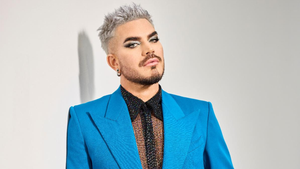In 2013, the Indian Supreme Court shocked the nation and the world by re-criminalizing homosexuality. Decades of progress, which had culminated in a 2009 ruling by a lower court to legalize same-sex activities, were swept away by the odd decision to reinstate a ban first imposed by British Colonial authorities in 1860. Tomorrow holds hope for change, however, as India's supreme judicial body is set to decide whether or not to revisit the issue. Activists are hoping that the Supreme Court, which is known for its progressive approach to civil rights and the rights of minority groups, will rectify what many have interpreted as a gross affront to human dignity in the world's largest democracy.
Sadly, the legal challenge faced by LGBT people is not unique to India. While Britain has progressed immensely on LGBT issues in recent years--marriage equality is now legal in England, Scotland, Wales, and the Republic of Ireland--its legacy around the globe is far less positive. Of the 76 countries that still criminalize homosexuality, more than half of them do so because of laws imposed by the British Empire in the 19th century. Activists have repeatedly called upon Britain to pressure Commonwealth nations (former colonies) to overturn the archaic laws. At the opening ceremony for the 2014 Commonwealth Games, held in Glasgow just months after Scotland voted to legalize same-sex marriage, organizers included a same-sex kiss--something that was broadcast live to more than 1 billion people across the Commonwealth.
While a number of countries retain laws on the books without actively persecuting gay people, more than 600 arrests were reported in India in 2014. Shashi Bhooshan, a gay rights activist, spoke with the Guardianabout what a positive outcome would mean:
"I feel excited and nervous for tomorrow. If we get a good verdict, it will be a big step forward and give me security as a citizen of this country. How can I be living in the world's biggest democracy in 2016 and still be denied a fundamental human right?
"Right now, I am considered a criminal. There's a fear around it, a social stigma. But it becomes easier to change people's minds if the law is on your side. It is easier to explain to them that you're not doing anything wrong, that you're normal."
UPDATE: On Tuesday, February 2, the Supreme Court announced that it would reopen hearings into the criminalization of homosexuality. It's a rare move to accept a "curative petition," a legal procedure that allows for Supreme Court rulings to be revisited. Buzzfeed reports that only three such petitions have been successful since the procedure's inception in 2002.

























































